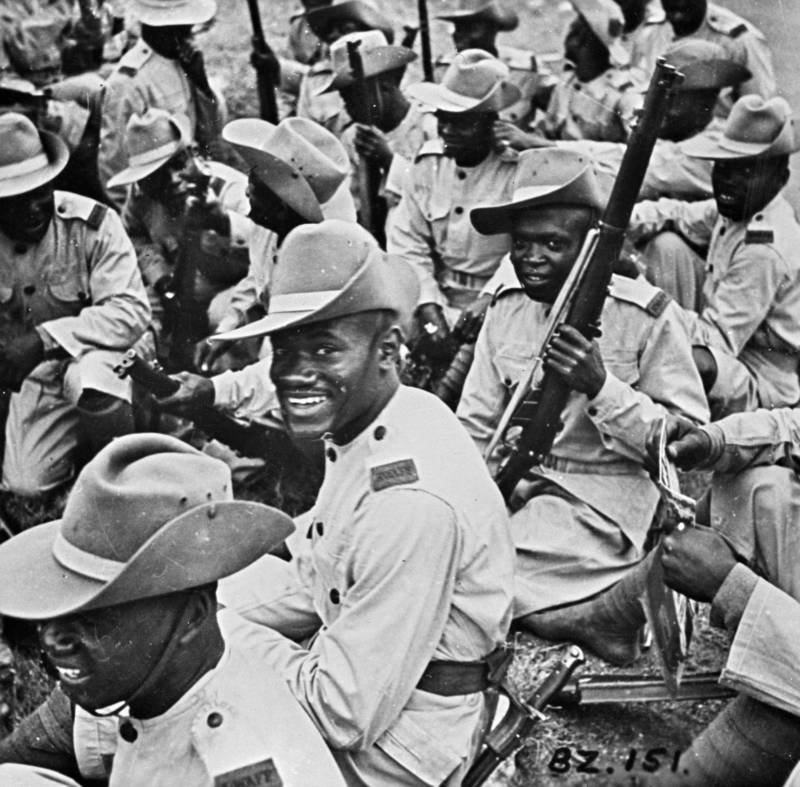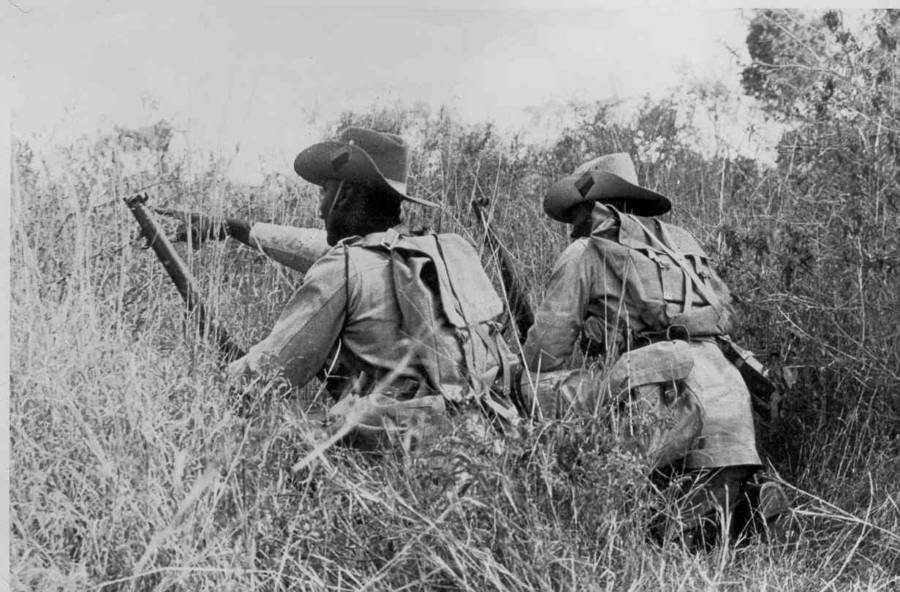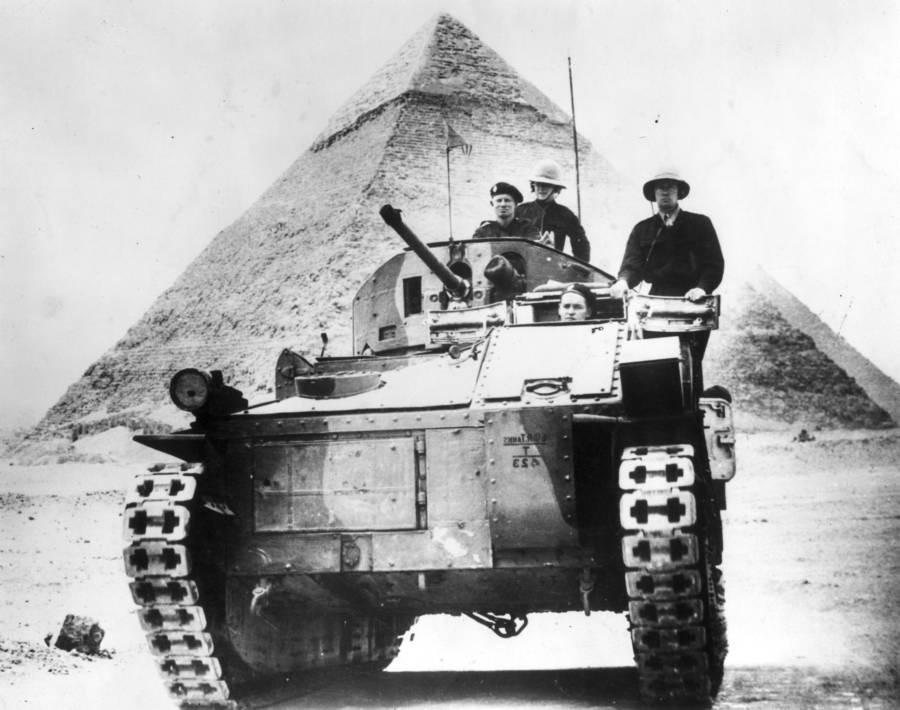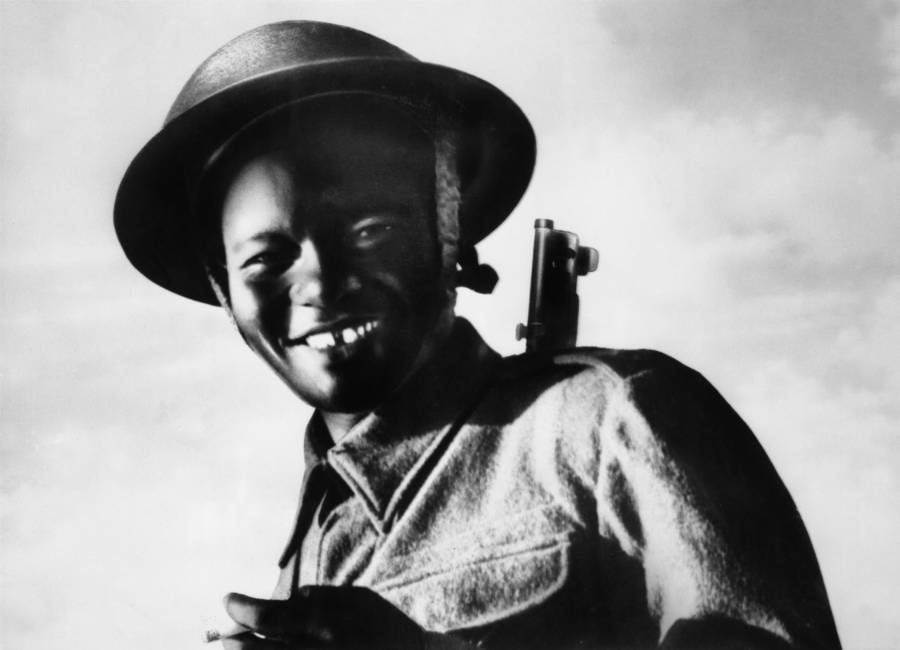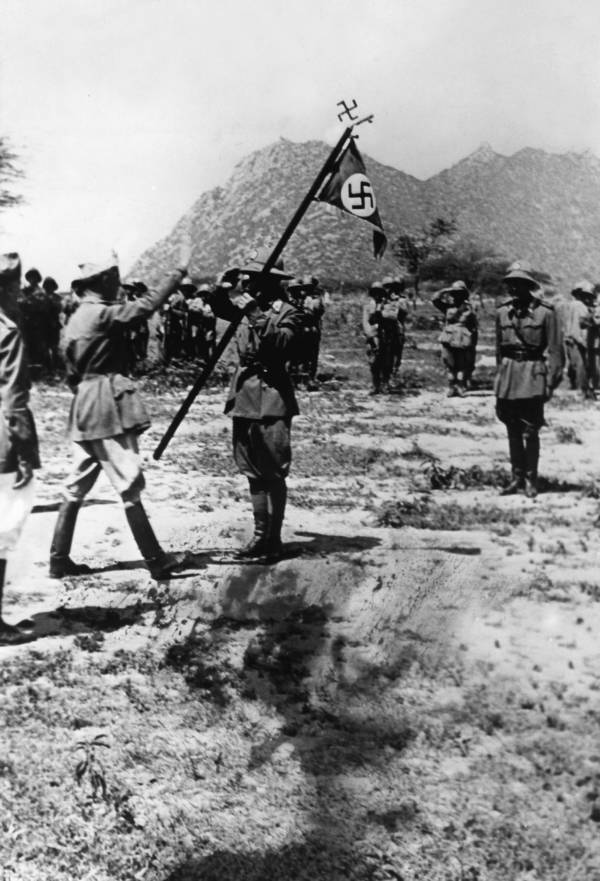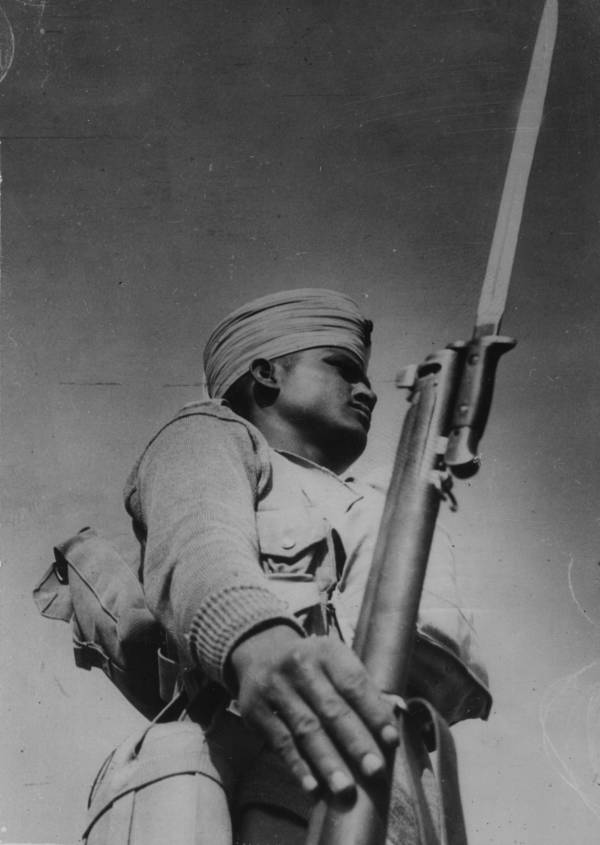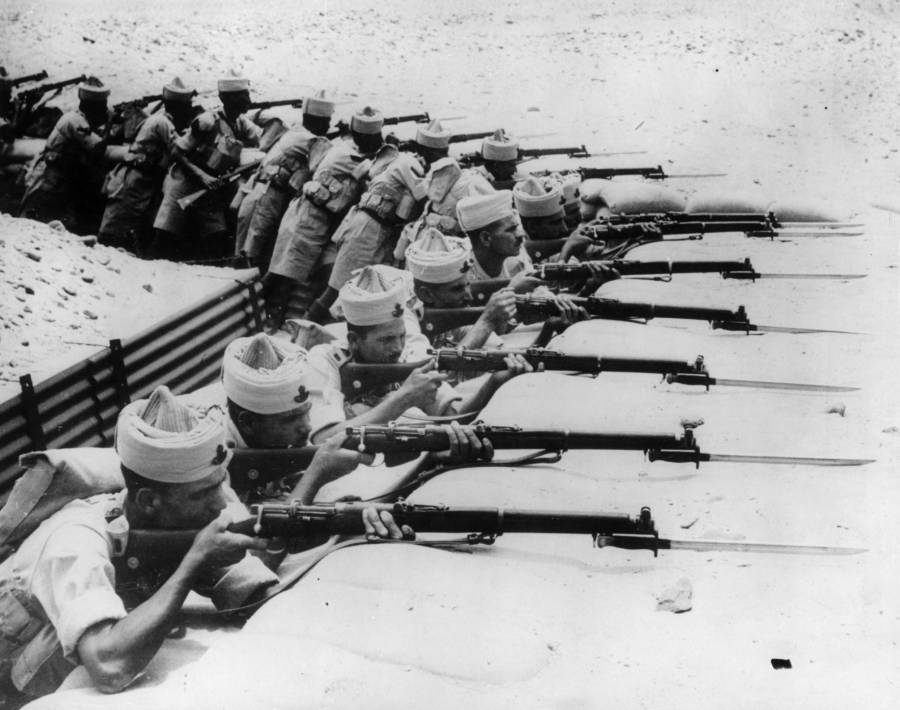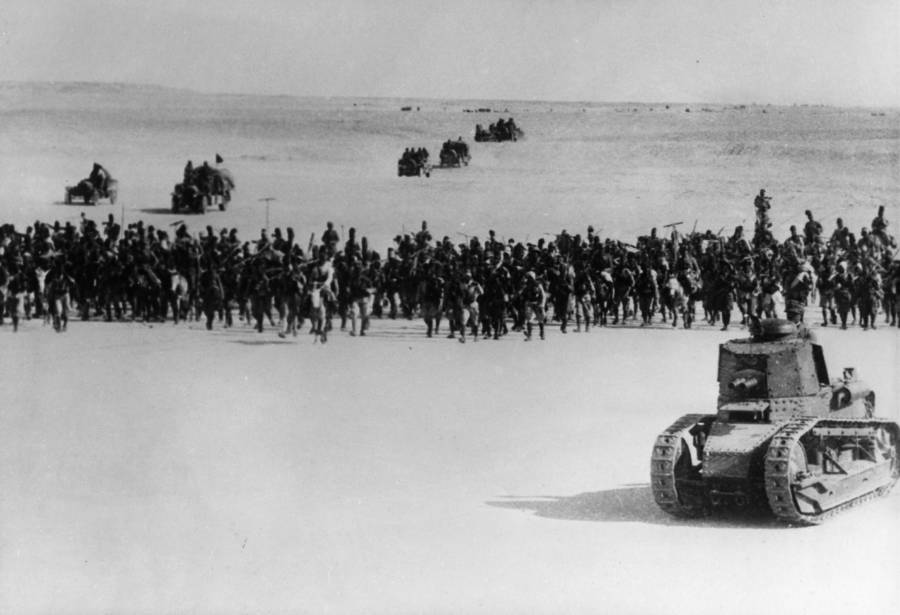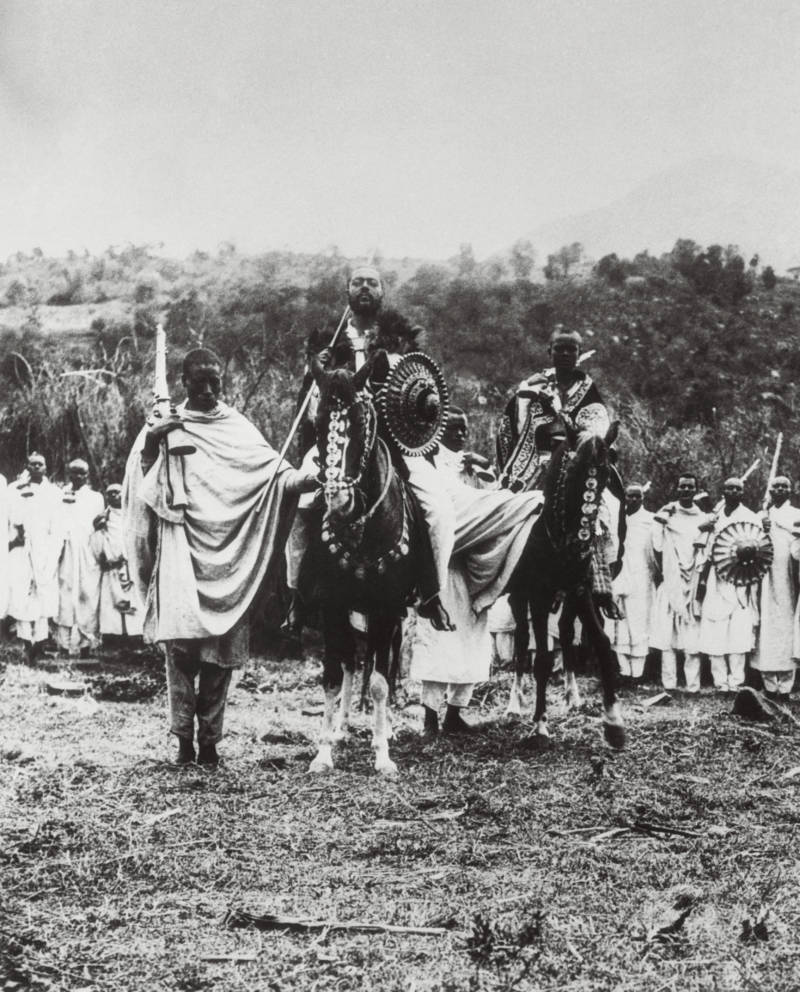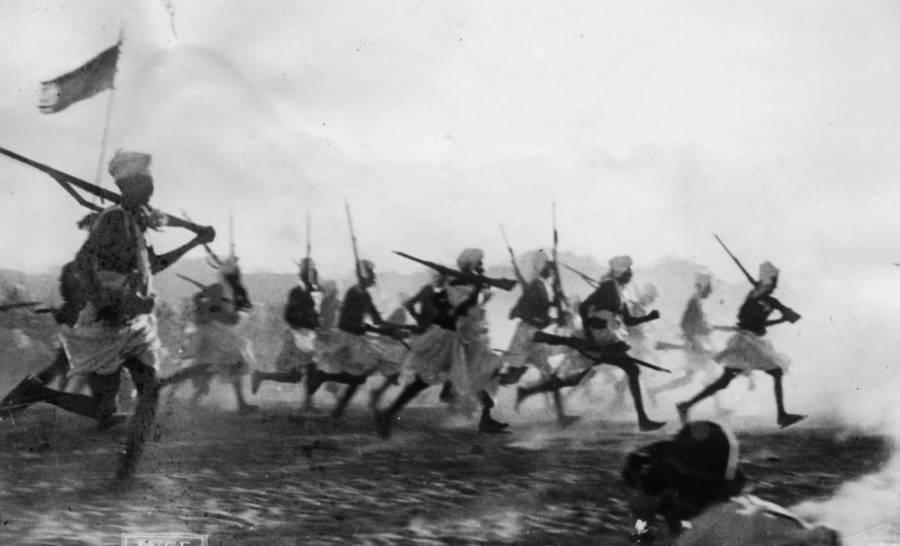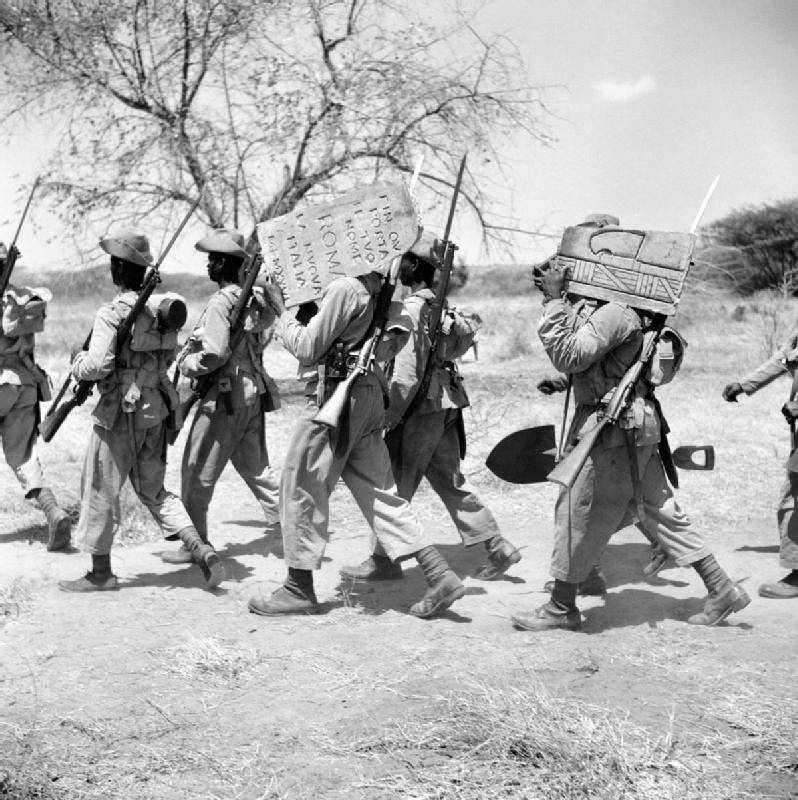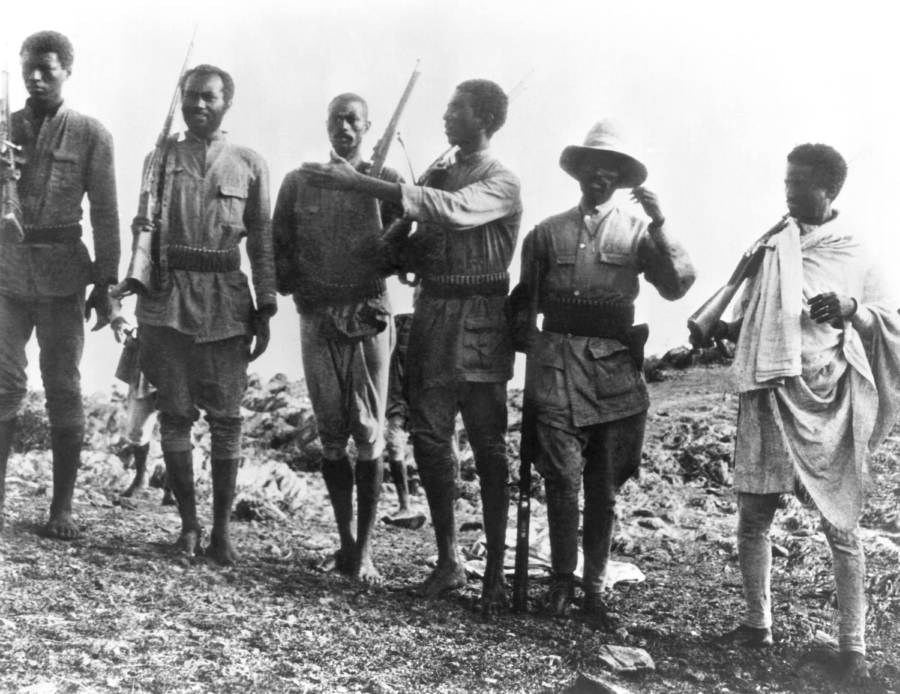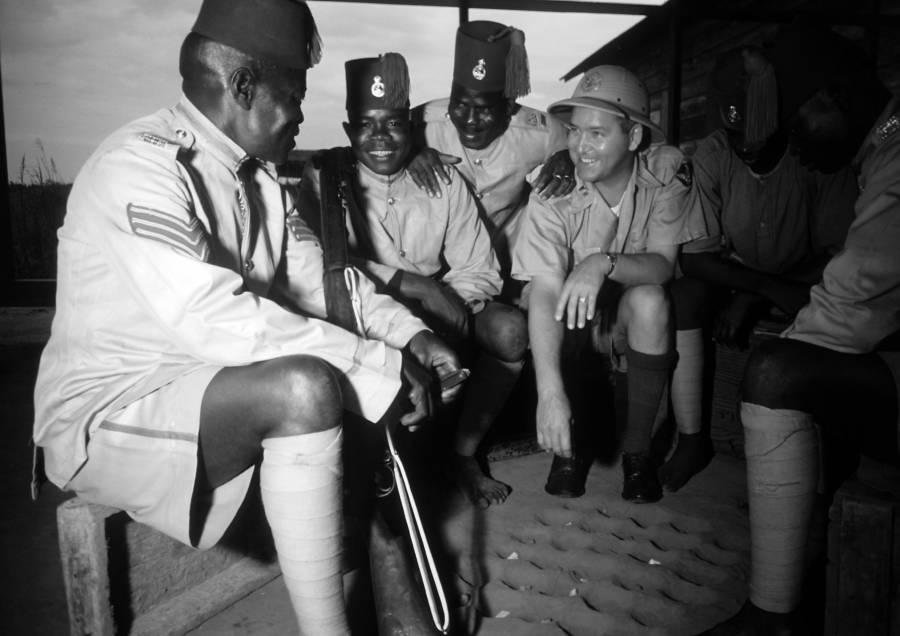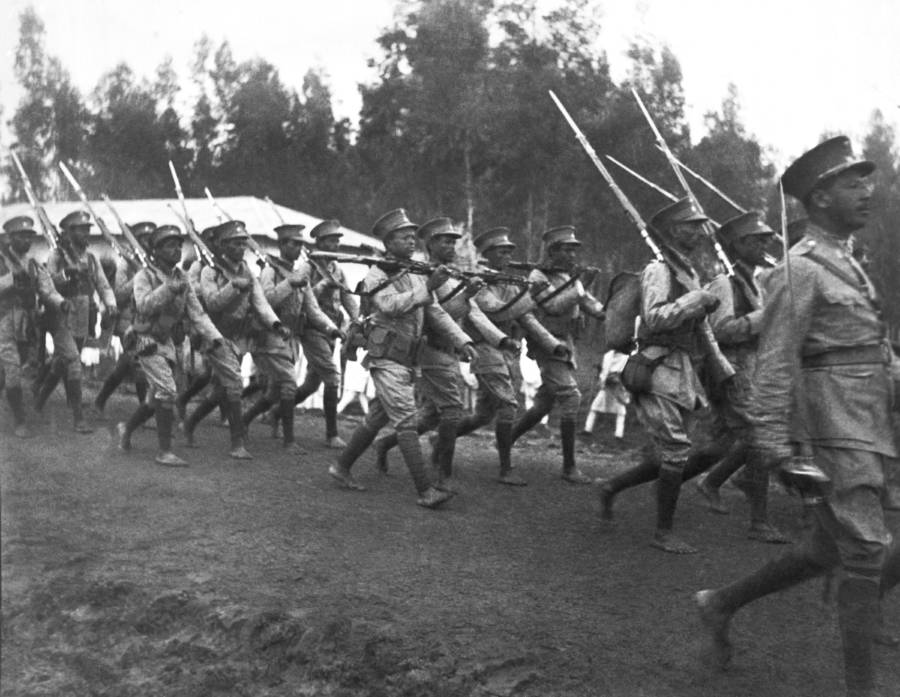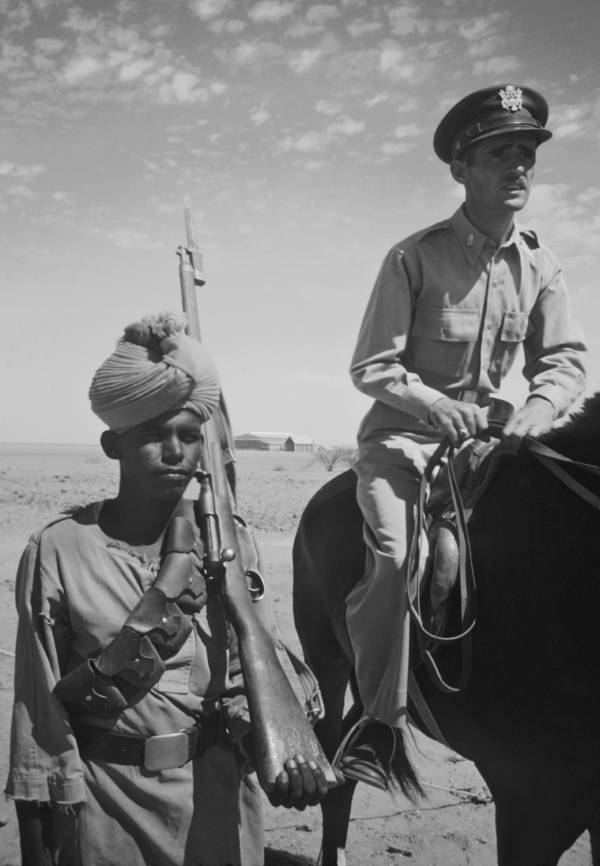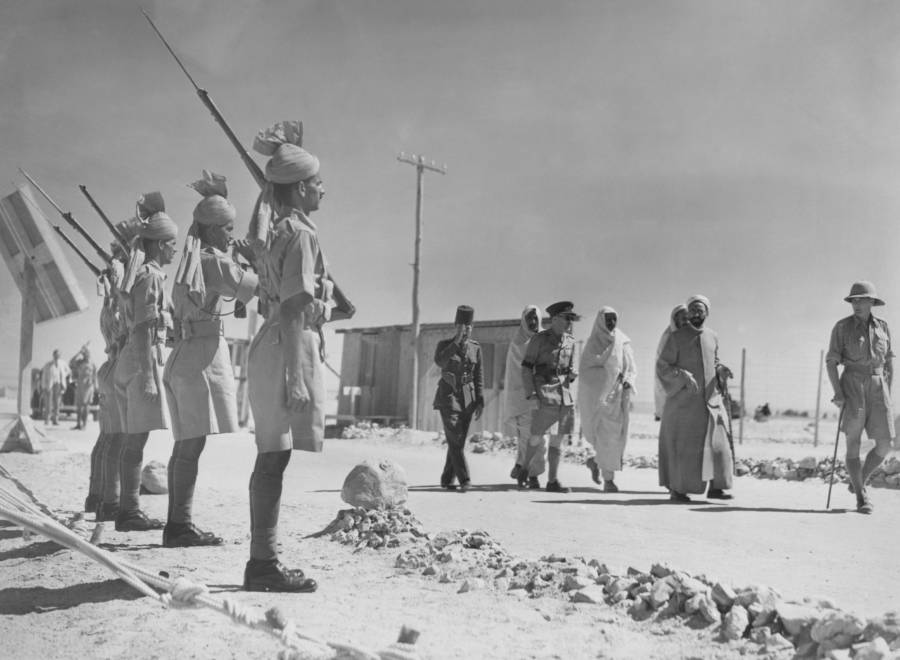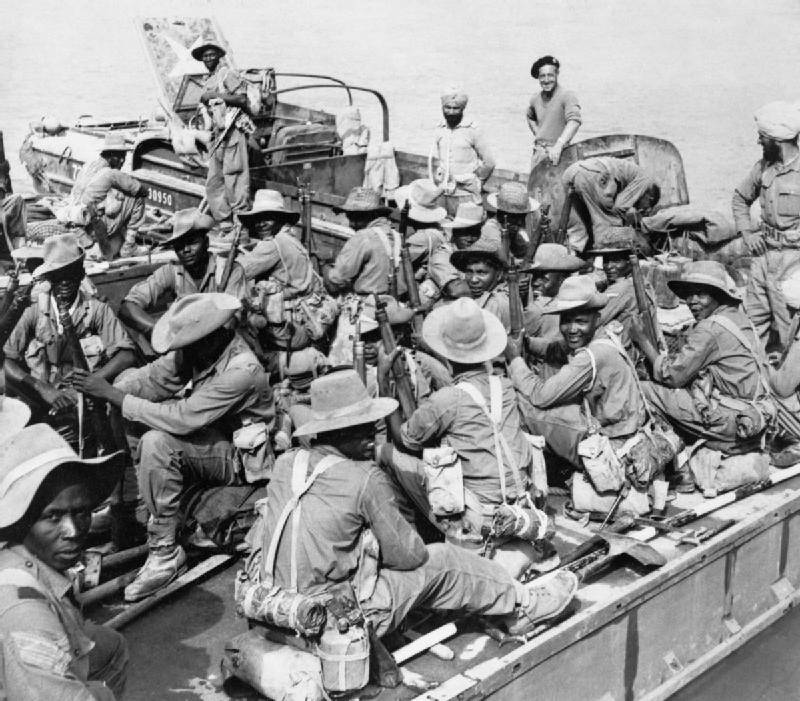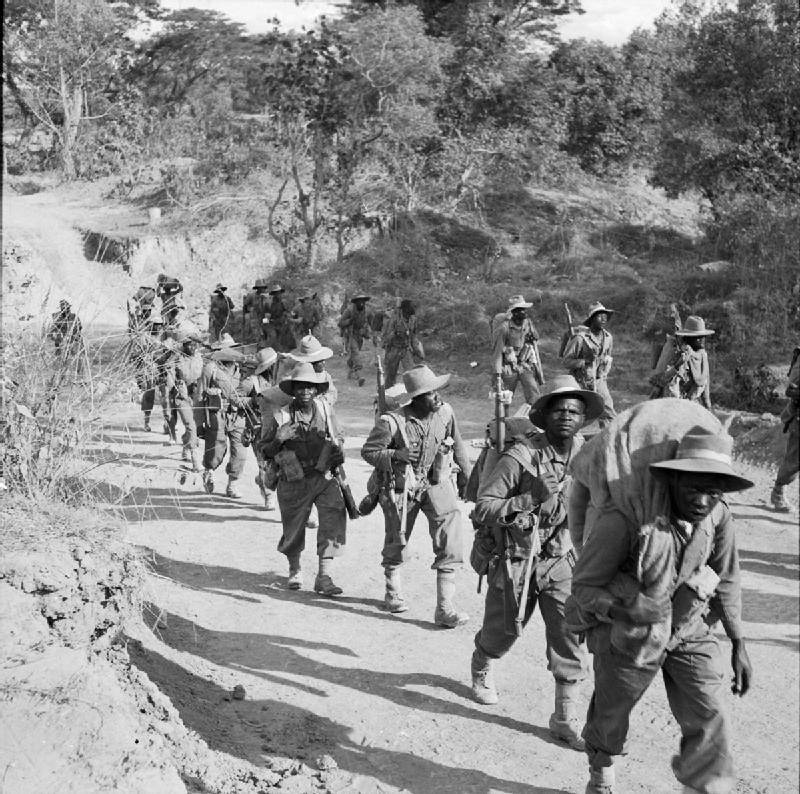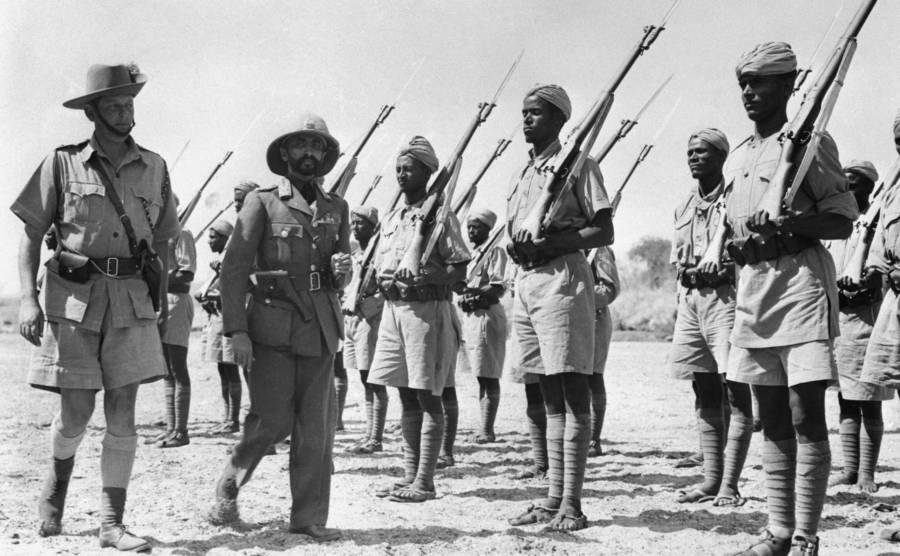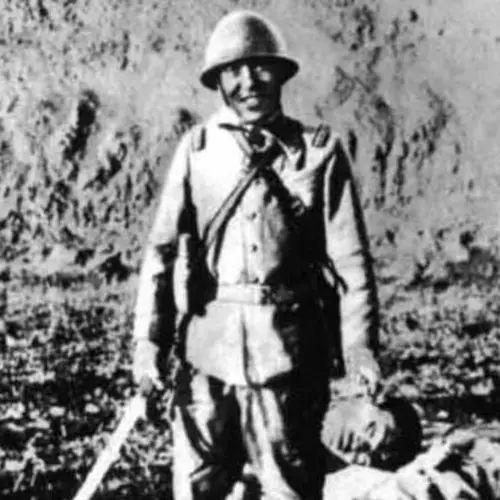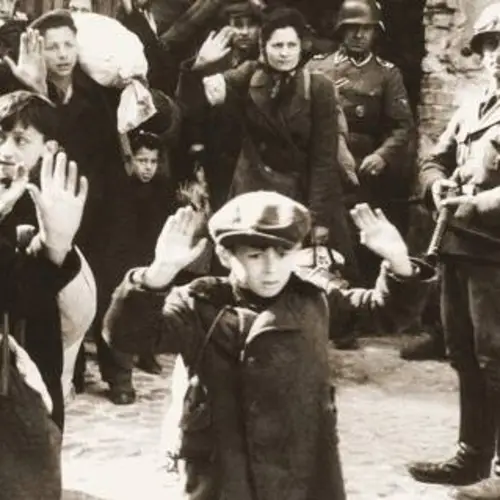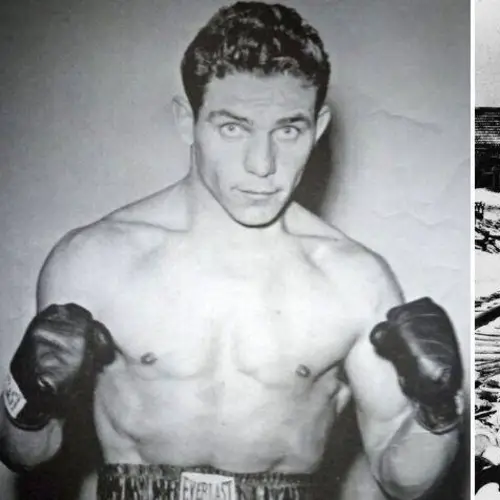"In those days, we were very loyal Brits - stupid as that may sound. We were brainwashed into being little brown Britishers."
Mein Kampf, said World War II veteran John Henry Smythe, was "a book which would put any black man's back up."
Smythe was born in Sierra Leone, more than 4,000 miles away from Adolf Hitler's seat of power in Nazi Germany. Nonetheless, he was determined to eradicate the dangerous ideas that the Führer espoused.
"We read what this man was going to do the blacks if he gets into power," Smythe continued. "He attacked the British and Americans for encouraging the blacks to become doctors and lawyers."
In 1939, the year World War II began, Smythe joined the Sierra Leone Defence Corps and shortly after left his home country to join the British Royal Air Force. And Smythe was but one of the more than 1 million Africans who took up arms over the course of the war.
These men were colonial subjects and they were treated like a lower form of humanity by those very Europeans powers that had started the war — the powers for whom they were fighting now. And yet they joined the fight anyway, each for his own reason and, for the first time in their lives, found themselves fighting side-by-side as brothers in arms with their colonizers.
The stories of these men are rarely told in Europe and North America, but in their home countries, they were tremendously impactful. Ultimately, whether their stories get the attention they deserve or not, the African veterans of World War II changed the course of that war and the history of an entire continent.
The Italo-Ethiopian War
For Africa, World War II began on Oct. 3, 1935. At 5:00 that morning, a vast Italian army under orders from fascist dictator Benito Mussolini crossed the Mareb River and into Ethiopia where they ordered the people of the country to turn on their Emperor Haile Selassie.
Those loyal to the emperor fought with all of their might to keep their country free from fascists, but the might of the Italian army was overwhelming. They deployed hundreds of tons of chemical weapons upon Ethiopia, choking soldiers and civilians alike.
By May 5, 1936, the Ethiopian capital of Addis Ababa fell to the Italians. Emperor Selassie was forced to flee the country and begin an exile that would carry on for years.
Africa had just been given its first taste of the war to come. In June 1936, Selassie appeared before the League of Nations and gave the world a chilling warning: "It is us today, it will be you tomorrow."
How The War Brought Change To Africa
As Selassie predicted, war began in Europe when Hitler invaded Poland in 1939, and in June 1940 it spilled further into Africa. The fascist armies launched their North and East African campaigns and, in September, moved into West Africa as well. Africa became a battleground in a war that had nothing to do with them, with tanks and bombers devastating their countryside.
In response, the men of Africa signed up to fight. More than 1,355,000 Africans fought in World War II with most joining the armies of the colonial powers that had invaded their countries just years before. To the Allies and the Axis, Africa represented little more than a strategic position. And after years of colonialism, many of the African men had started to accept their place in life as colonial subjects.
"In those days, we were very loyal Brits - stupid as that may sound," Joe Culverwell, a Zimbabwean soldier who volunteered to fight the Italians in Somalia, told the BBC. "We were brainwashed into being little brown Britishers."
World War II, some believe, was when that kind of thinking finally changed. When the war ended, revolutions swept throughout Africa. In the 1950s and 1960s, nearly every African country saw a battle for independence.
It's no coincidence that the decolonization of Africa followed World War II. Those African soldiers came back home with different ideas about themselves and their world.
"As a colonial soldier I had very rough treatment," Marshall Kebby, a Nigerian veteran of World War II said. "At that time we hadn't even a single Nigerian officer, all were British. We used to have long chats about the color problem and we were determined that we were not going to be treated that way anymore."
Those conversations become even more heated once the Italian invasion ended. For many African soldiers, getting the Axis out of their homeland didn't represent the end of the war. They were Allied soldiers now, ready to fight to the ends of the earth to stop the Axis, and so many went on to Burma and India to fight against the Japanese.
The fighting there was hell. They were in a foreign land, fighting for foreign people, dragging themselves through unfamiliar jungles with the threat of Japanese soldiers using guerrilla tactics leaping out at any moment.
Many died fighting on foreign soil, but those who survived came back with a new sense of their own self-worth.
"Initially, I saw the white man as someone better than me," Nigerian World War II veteran Hassan Sokoto recalled. "But after the war, I considered him an equal."
Revolutions After The War
The colonial powers promised many things to the African veterans of World War II. They were promised medals, awards, and military pensions.
But when the war ended, few actually received those medals or pensions. In Ghana, that betrayal started the first African revolution for independence.
In February 1948, Ghana's World War II veterans marched on the governor's residence and demanded the pensions they'd been promised but never received. A force of British Colonial Police, however, blocked their way. The stand-off between African veterans and British colonialists turned into a bloodbath when a Police Superintendent opened fire into the crowd, killing three veterans before they had the chance to react.
The city erupted into chaos. The African veterans and the British police broke into a battle that ended with 60 veterans dead. But the Ghanaian veterans wouldn't let it end there. As one of the men present, Kalimu Glover, told the BBC, "After the shooting, we said we should damage all British things in the city. We got stones, sticks to break down shops. We broke them all down."
For five days, the people of Ghana rioted. In the wake of that massacre, the riot had become something bigger: a revolution for independence. Ghana was soon allowed to draft its own constitution and by 1957, granted full independence from the British Empire.
Their success inspired a continent. By 1970, 45 African countries had won their independence. "We came back with improved ideas about life," Kebby said. "We, the ex-servicemen, gave this country the freedom it's enjoying today. We gave this freedom and handed it over to our country."
Next, find out about the Harlem Hellfighters, the African-American soldiers of World War I. Then, check out these photos of Africa before colonialism.
